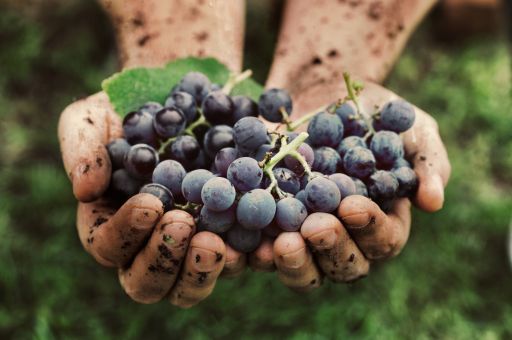A modification of the regulations was made at the request of the Regulatory Council, which also makes changes to the minimum total acidity of the wines.
The Regional Ministry of Agriculture, Fisheries and Natural Environment, through the Directorate General for Agri-food Quality and Local Produce and at the request of the Binissalem Designation of Origin Regulatory Council, has modified the regulations governing the production and marketing of wines under this DO. The most significant change is that the local escursac grape variety may be used in the production of wines under the Binissalem DO. This variety joins the other 8 grape varieties, also black, that have been recognised until now, such as manto negre, callet, ull de llebre, monestrell, cabernet sauvignon, merlot, sirà and gorgollassa. The director general of Agrifood Quality and Local Produce, Joan Llabrés, stated that ‘with this measure we are responding to a request from wine producers who are calling for regulations adapted to climatic conditions and the recovery of local varieties’.
TDB keeps you informed. Follow us on: Facebook, Twitter and Instagram
The Government introduced escursac into the list of local grape varieties that can be used to make wines under the Binissalem DO
On the other hand, the changes in the regulations also foresee a modification of the minimum total acidity of the wines, which is now 3.5 g/l of tartaric acid. In this regard, a study presented by the Control Board and carried out by the University of the Balearic Islands (UIB) and the Institute for Agri-environmental Research and Water Economics (INAGEA) has been taken into account, which explains that climate change not only has an impact on grape harvests and the quality of wine vintages but also has a direct effect on the physicochemical parameters of the must.
With increasing temperatures and changes in rainfall patterns in recent years, the natural acidity of must is decreasing. Acidity is a key parameter in winemaking and influences taste balance, microbiological stability, colour preservation and longevity of the product. This low natural acidity of the musts has meant that in recent years the dosage of tartaric acid has had to be increased to reach the minimum established by the regulations. Excessive addition of tartaric acid can have negative consequences on the sensory profile of the final product. Llabrés stressed that ‘reducing the minimum level of acidity has no negative repercussions on the quality of the wine’.
The Order of the Minister Joan Simonet was published today in the Official Gazette of the Balearic Islands (BOIB).
The Order of the Minister Joan Simonet has been published today in the Official Gazette of the Balearic Islands (BOIB).
Escusac local variety
Escursac is a local variety that has been maintained and recovered thanks to the work of Mallorcan winegrowers and wineries and was authorised for wine production in 2016. This grape variety produces fresh, fruity and mineral wines with a low alcohol content.
